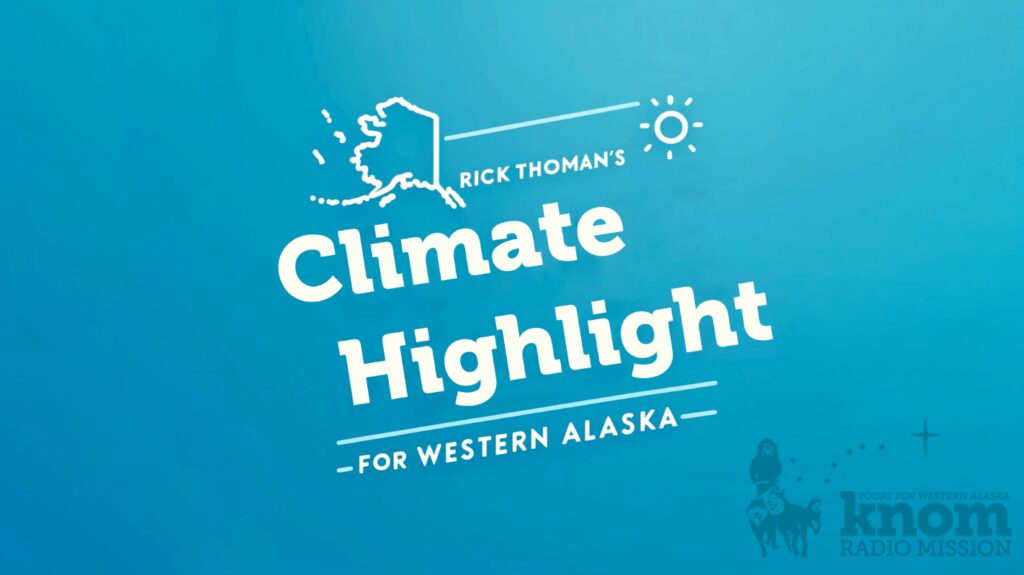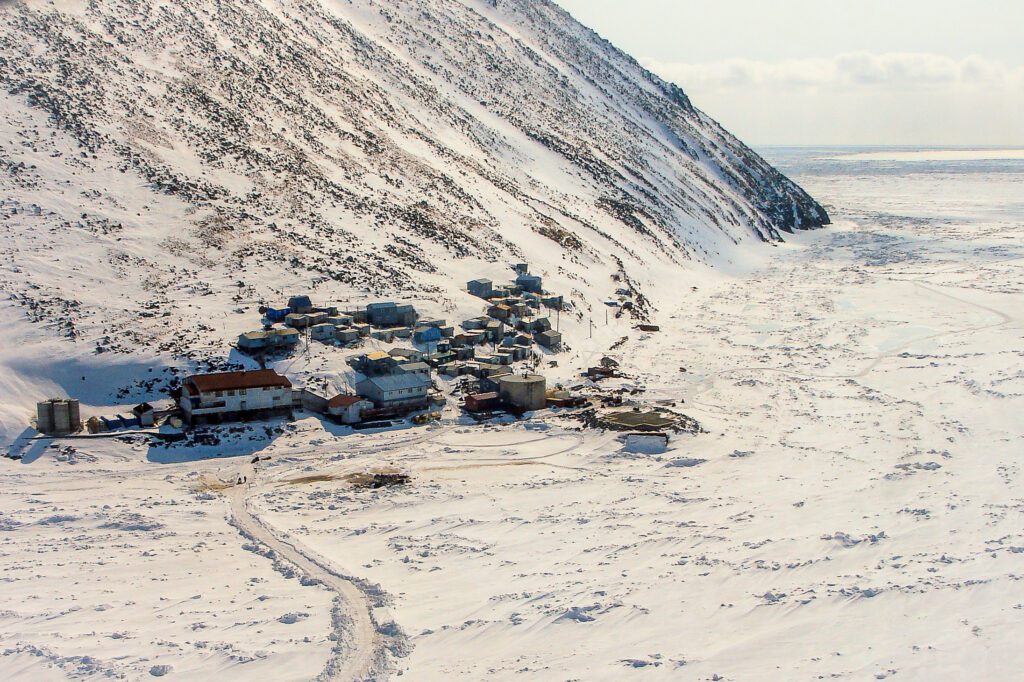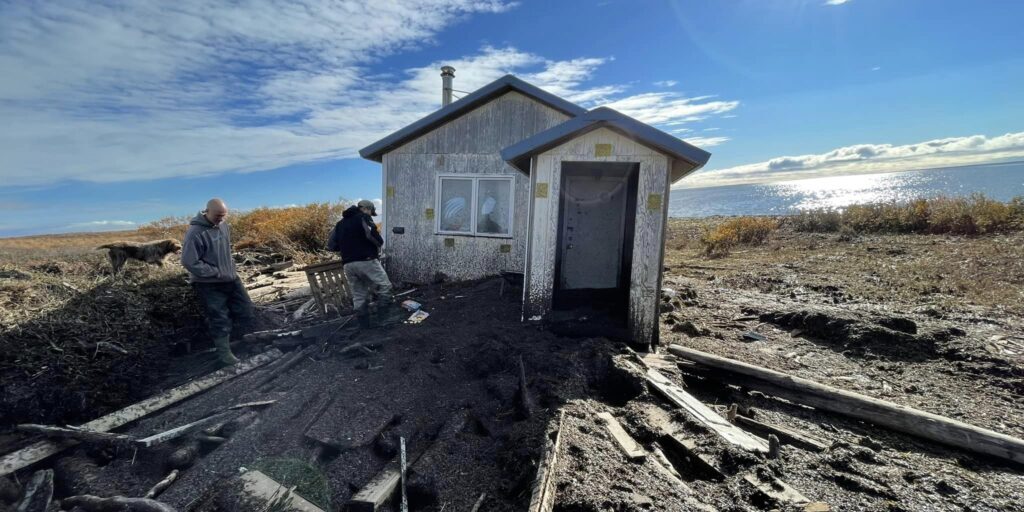Countless numbers of Western Alaskans have lost subsistence resources, food, and even camps that ties them to the land. While various agencies are still assessing the scope of damage from the storm, residents are processing what this loss means to them and their families.
Melanie Bahnke, CEO of Kawerak Inc., shared with KNOM listeners on Sept. 21 that the damage to subsistence cabins goes beyond loss of buildings.
“We’ve got several people who have lost their subsistence cabins and their boats. And we all know that our subsistence cabins aren’t just recreational. They are means for our food security but also for our cultural continuation and they connect us to the land and our ancestors,” Bahnke said.
Bahnke’s point about the cultural connection being affected by the storm has been echoed again and again by Western Alaskans.
Darlene Trigg is one of many Nome residents who no longer has a camp to for her and her family to enjoy. It was completely washed away by the storm.
“The camp itself is gone, but you look down and you’ll see things. We had just remodeled it and there’s a doorknob, like a…well it was a homemade door so whatever he used to latch it. And it’s just sitting right there on the ground. We walked over to where the boats were. But you could see his (my dad’s) commercial fishing tag on the ground, right there where his boat was,” Trigg said.
Some locals still have their family cabins intact, but they have been moved across the Safety Sound or relocated to another spot on the tundra. Others are picking through the debris of what use to be their subsistence camps.
“On this very small patch of land each of my family members has their own story, all the work and love they put into it and their own memories each of which is precious – this goes for all of the camps affected. Each of us has been impacted even if we didn’t lose a cabin – it’s a collective experience,” Trigg said.
“My mom and dad took it upon themselves to make sure all of the kids had subsistence foods, and it all happened there,” Trigg continued. “My earliest memories are in that building, around that land. It’s a part of the foundation of who I am…it’s built into my identity.”
During his visit to the Norton Sound earlier this week, Gov. Mike Dunleavy witnessed the significant damage done to boats and subsistence gear in the Nome area.
“You fly up and down this coast, you have countless fish camps, you have countless cabins, countless areas where there is valuable property that folks can’t get to,” Dunleavy said.
Throughout the region, residents have talked about the impact this storm had on their subsistence lifestyle. Alaska Senator Donny Olson of Golovin pointed out the community’s subsistence food was almost spoiled when the power was out in Golovin for days.
Daisy Lockwood Katcheak, the City Administrator in Stebbins told KNOM her community will not have as much food for winter.
“100% of the fish racks and fishing supplies for all our subsistence fishermen are gone,” Lockwood Katcheak said.
Lockwood Katcheak estimated that a quarter of the community didn’t even get to fish and gather subsistence food this summer, due to the lack of salmon in the region and the essential work that needed to get done in Stebbins. The community is requesting food deliveries from various agencies to help sustain them over the coming days.
As families are pulling together to cleanup and repair what’s left of their generational cabins, now the question is: will financial assistance from the federal government help rebuild these vitally important subsistence camps and resources?
Bahnke said Kawerak will do its part to make sure those needs are addressed.
“We need to be able to convey that these are not just recreational use cabins, these are our means of supporting our families and our communities. And as our ancestors have passed these resources along to us and the knowledge, and the connection to the land, the rivers and oceans; we want to be able to pass that on to future generations as well,” Bahnke said.
Alaska’s Congressional Delegation has sent a letter to President Joe Biden urging him to approve Gov. Dunleavy’s request for a major disaster declaration in Western Alaska.
Image at the top: A subsistence camp in the Nome area after the historic September storm hit Western Alaska. Photo from Bridie Trainor of Nome, used with permission (2022).




